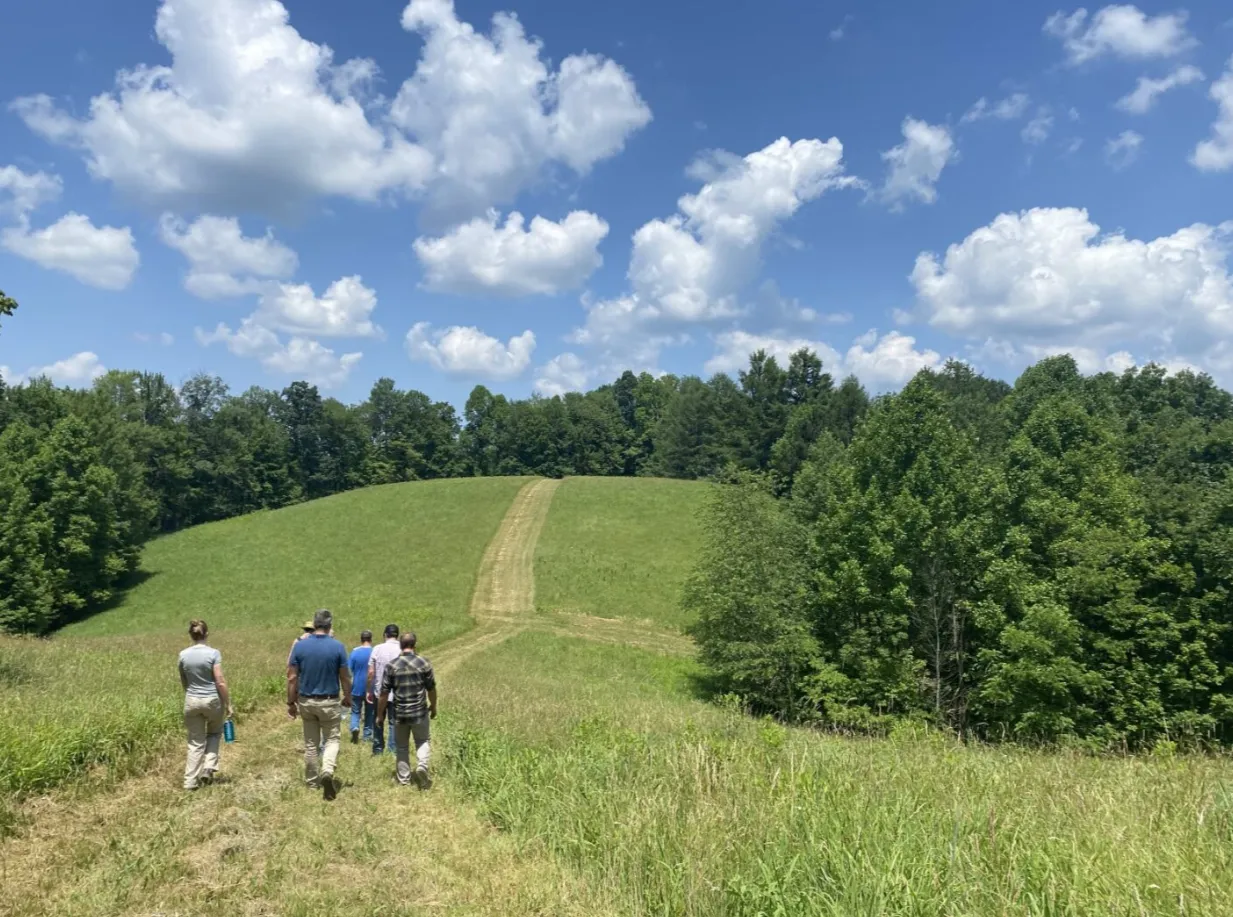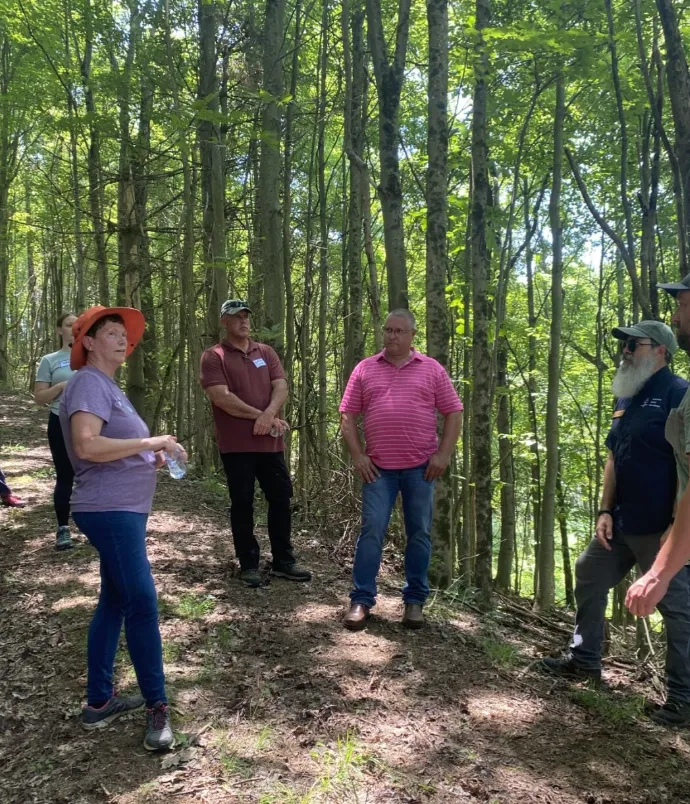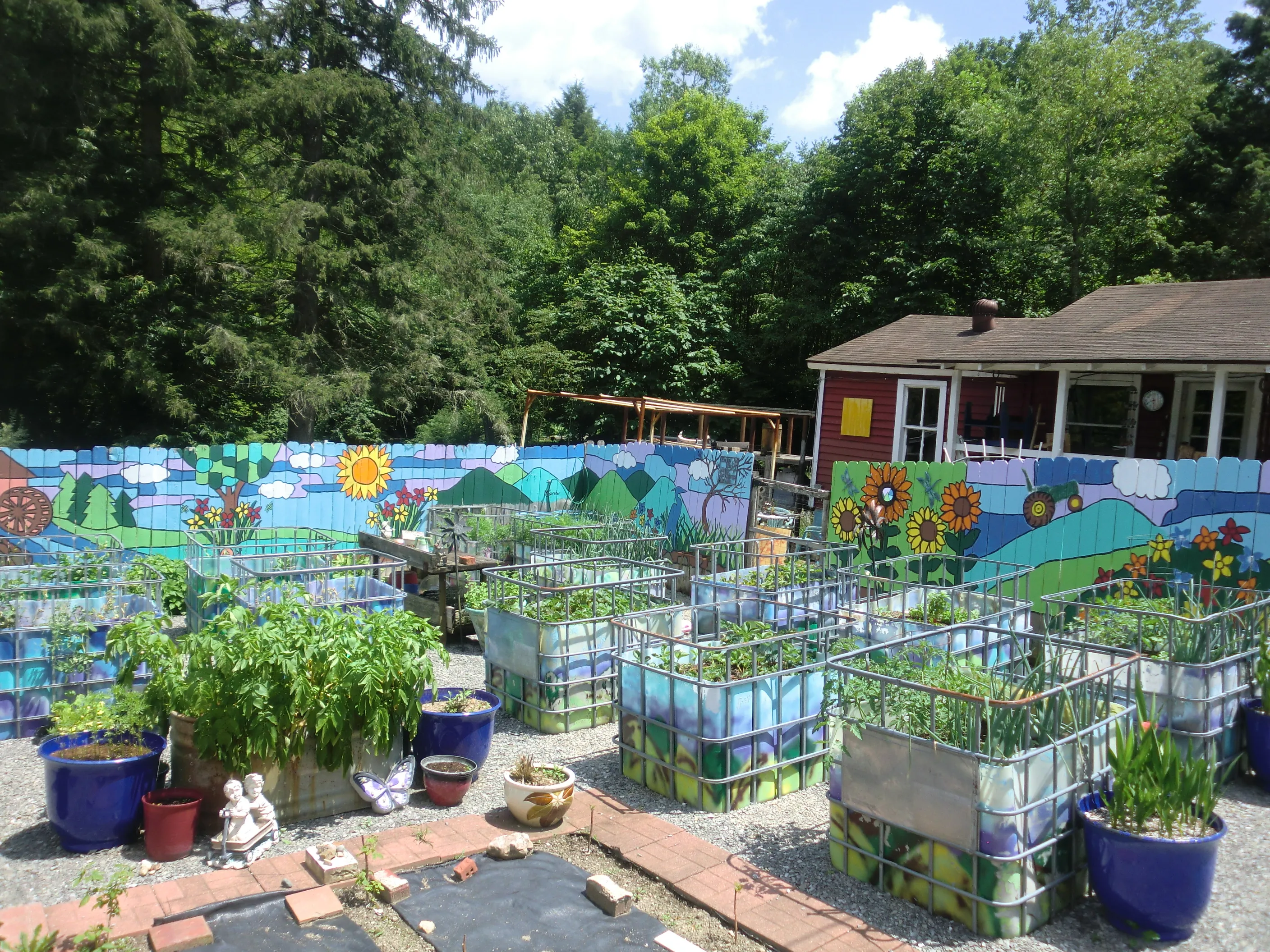Painting the Picture of a West Virginia Forest

Michelle Strader has had many roles in her career from working in social services to being a full-time artist, and her husband, Wayne, is a CPA who works with local loggers and foresters. The latest addition to their resumes is the role of landowner. Michelle and her husband Wayne purchased a small piece of land in Eden, West Virginia 20 years ago, and over time have grown it into 300 acres. While Michelle works mainly with clay and paint in her art practice, her words also create a beautiful picture of what forest ownership is like.

Today, the Strader’s land is home to both beautiful art and bountiful wildlife. Their farm is covered in detailed murals created by Michelle and is home to adorable animals. They house chickens, dogs, cats, and 39 sheep, including a few months-old lambs. Their backyard pond is full of fish and loud-croaking frogs. They planted a large pollinator garden attracting all sorts of insects, hummingbirds, and Michelle’s personal favorite – the praying mantis.
The surrounding areas also shelter an array of wildlife. They are visited by one little box turtle annually as she lays her eggs and they spot the occasional deer, bear, turkey vulture, even received a very special guest when a bald eagle landed in their yard.
However, maintaining this natural haven takes money and that’s where the Family Forest Carbon Program came in. The Straders first reached out to FFCP after an Airbnb venture on part of the property fell through. The land had once belonged to Wayne’s great-uncle, and they wanted a way to keep the land maintained by the family while offsetting the extra burden of property taxes.
“We called and talked to different people, and everybody was just so nice, I mean, just so helpful. We went through everything and if we had any questions, everybody answered everything.” Michelle explained.
Once enrolled, the Straders now had access to financial and technical resources to more effectively manage their land, including annual payments and a designated forester. Through their forester, the Straders learned they were dealing with invasive species on their property. Despite having a diverse variety of pines, oaks, and maple, the woodlands were infested with Japanese Stiltgrass and Kudzu, a thick vine that grows almost a foot a day. With this new knowledge, Michelle and Wayne are finding new ways to tackle these invasives and despite the difficult maintenance, they are proud of taking care of their environment.

Michelle also wishes that the public would be better educated on the benefits of carbon programs and aware of the misinformation that is spread about them. Many landowners are concerned about what enrolling in programs like FFCP will mean for their property rights or their ability to harvest. When enrolling in FFCP though, landowners retain all rights and profits, and the management practices allow for sustainable harvesting.
For the Straders, FFCP has given them the tools to ensure the health of their forest for generations to come. And their now thriving forest has given a new outlook on life.
“I moved from a place where I walked out my front door, had no front yard, and walked right out onto the pavement. There were trees, obviously in town, but it wasn't anything like this. I mean, you couldn't see the stars like you see here.” Said Michelle. “I think we get so wound up in things and cause ourselves so much anguish and stress. I think if you can get out into the open air and walk in the trees, walk around in the forest, I think a lot of that goes away.”
The Straders will continue to care for their little piece of Eden, preserving it as a haven for all who call it home—whether human or wild.